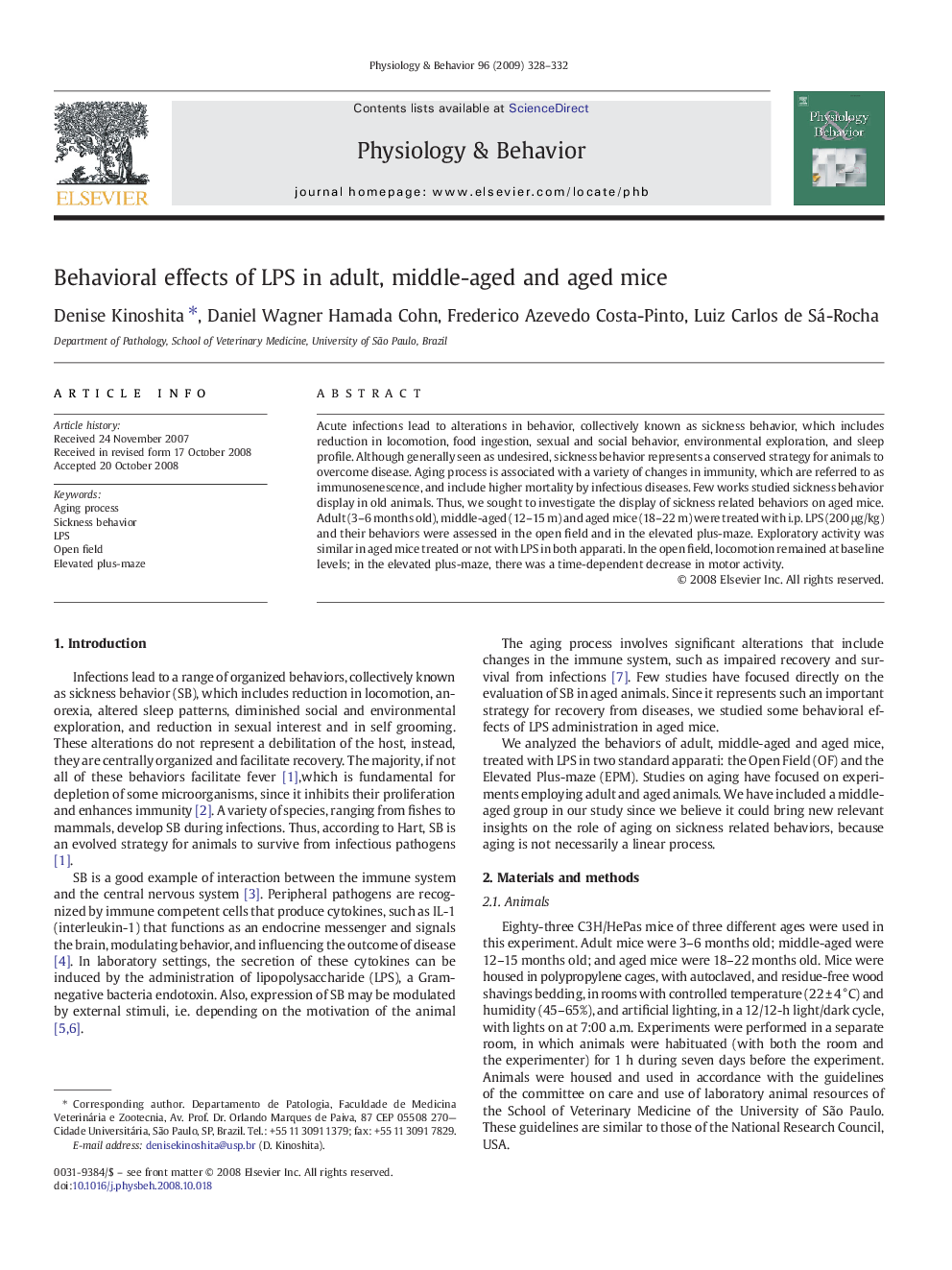| Article ID | Journal | Published Year | Pages | File Type |
|---|---|---|---|---|
| 2845228 | Physiology & Behavior | 2009 | 5 Pages |
Acute infections lead to alterations in behavior, collectively known as sickness behavior, which includes reduction in locomotion, food ingestion, sexual and social behavior, environmental exploration, and sleep profile. Although generally seen as undesired, sickness behavior represents a conserved strategy for animals to overcome disease. Aging process is associated with a variety of changes in immunity, which are referred to as immunosenescence, and include higher mortality by infectious diseases. Few works studied sickness behavior display in old animals. Thus, we sought to investigate the display of sickness related behaviors on aged mice. Adult (3–6 months old), middle-aged (12–15 m) and aged mice (18–22 m) were treated with i.p. LPS (200 μg/kg) and their behaviors were assessed in the open field and in the elevated plus-maze. Exploratory activity was similar in aged mice treated or not with LPS in both apparati. In the open field, locomotion remained at baseline levels; in the elevated plus-maze, there was a time-dependent decrease in motor activity.
